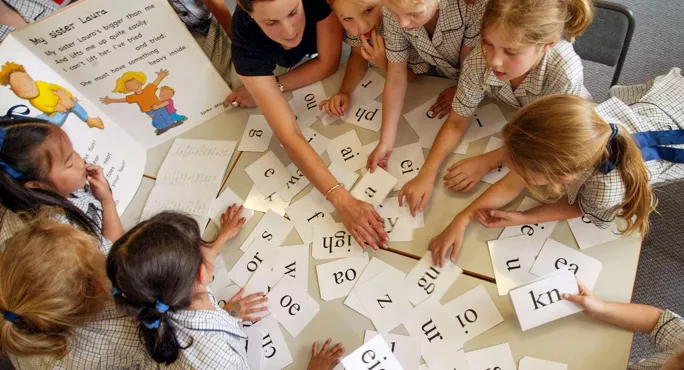The Department for Education has published a new ŌĆ£phonics-inspiredŌĆØ primary writing framework.
The is intended to give teachers tools and guidance to teach writing from Reception throughout primary and build stronger writing skills. It includes advice on how to integrate writing tasks across all subjects.
The framework has been developed with help from sector experts, including academics and leading practitioners and organisations, the DfE said.
It will, however, be revised once any changes to the national curriculum are implemented, the framework states. The final version of the ongoing curriculum review report is due to be published in the autumn but any resulting changes to the curriculum are not expected this year.
New primary writing framework
The new framework focuses on how spoken language should be used to develop writing skills, and says teachers must support pupils to make links between talking and writing.
ŌĆ£In the early stages of learning to write, sentence-level composition should be carried out orally,ŌĆØ it states, adding that teachers should model how pupils can compose sentences out loud.
The writing framework says the Reception year is vital to build the foundation to support pupilsŌĆÖ writing. It says handwriting and spelling at this point are ŌĆ£crucialŌĆØ to ensure that these skills become automatic for children.
ŌĆ£TeachersŌĆÖ own handwriting should provide a model of high standards,ŌĆØ the framework says.
It also highlights the importance of sentence instruction rather than teaching grammar in isolation.
ŌĆ£Pupils need to master the foundations of writing - handwriting, spelling and sentence construction. They should not be expected to write at length before they are ready,ŌĆØ it states.
Schools should focus initially on teaching high-quality sentence instruction and transcription while gradually developing broader writing skills, the framework adds.
Avoid focus on test preparation
, the DfE states that teachers should avoid focusing too heavily on test preparation.
ŌĆ£This can limit the development of skills and knowledge, stifling pupilsŌĆÖ creativity and wider writing development,ŌĆØ it says.
The government has set out a milestone of 75 per cent of children reaching a ŌĆ£good level of developmentŌĆØ by the end of Reception by 2028.
To do this, pupils must reach the early learning goal for writing, which requires them to be able to write recognisable letters, spell words by identifying sounds and be able to write simple phrases and sentences.
ŌĆ£Far too many children are leaving school unable to write well, holding them back for future success,ŌĆØ said education secretary Bridget Phillipson.
Today the DfE described the new framework as ŌĆ£phonics-inspiredŌĆØ, while Ms Phillipson referred to former Labour education secretary Ruth Kelly (in post from 2004 to 2006) saying that all schools would use systematic phonics in the future.
ŌĆ£Phonics is now embedded in schools, and over 100,000 more children every year are securing the foundations of reading,ŌĆØ she said. ŌĆ£But this change did not happen overnight. Similarly, it will take time to address all the challenges in the teaching of writing.ŌĆØ
The DfE said only 55 per cent of white working-class children left primary school meeting the expected standard in writing in 2024, and only 30 per cent of children with special educational needs met the expected standard.
It is important that pupils who need additional support with writing are identified as early as possible, so that teaching can be adapted to help them access it, the framework adds.
Leaders are responsible for establishing a positive writing culture and a well-sequenced curriculum, and ensuring that all teachers are trained to teach writing, it states.
Sonia Thompson, headteacher and director of St MatthewŌĆÖs Primary Research School, said the framework ŌĆ£is designed to provide teachers and leaders with evidence-informed tools and reflection pointsŌĆØ.
She added: ŌĆ£It is not a checklist but a guide for improving confidence and practice, which will lead to improved pupil writing outcomes.ŌĆØ
You can now get the UKŌĆÖs most-trusted source of education news in a mobile app. Get Tes magazine on and on





